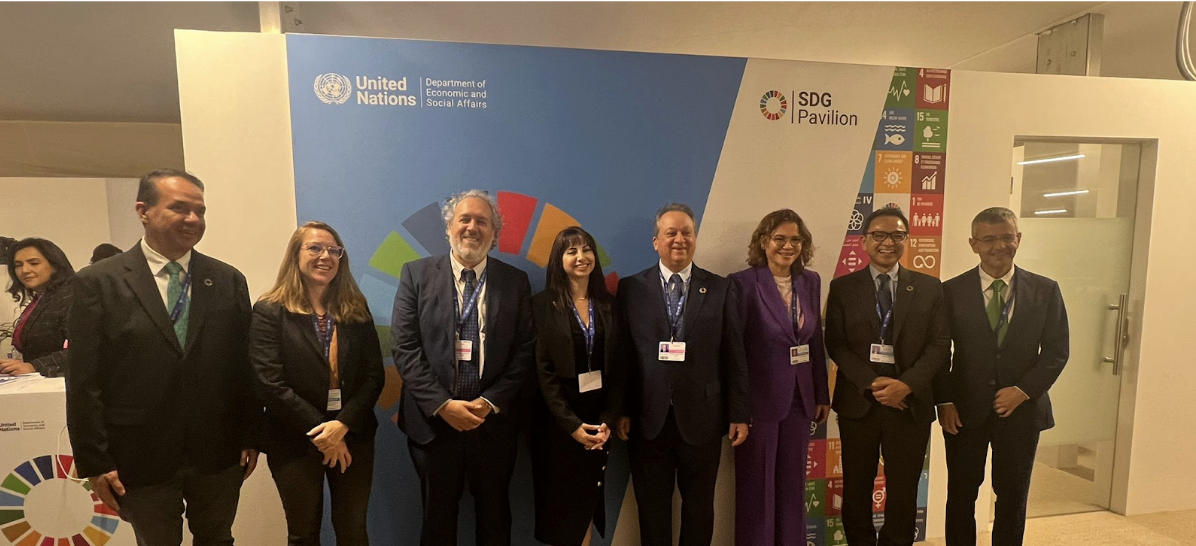ECLAC Presents the Challenges in Climate Change Mitigation & Adaptation and Proposals on Sustainable Water and Energy Transitions at the COP 28 Side Event in Dubai
Work area(s)
Topic(s)
The side event that took place in the SDG Pavilion aimed to foster knowledge exchange and discuss the potential benefits of integrated water-energy systems. It underscored the importance of a coordinated approach to water and energy in the context of climate change mitigation and adaptation, aligning with Sustainable Development Goals 6 (clean water and sanitation), 7 (affordable and clean energy), and 13 (climate action).

The 28th session of the Conference of the Parties (COP28) to the UN Framework Convention on Climate Change presents a unique opportunity to address the critical challenges of climate change. The pivotal side event, "Advancing Climate Change Mitigation and Adaptation through Integrated Innovative Sustainable Water and Energy Solutions" took place in the SDG Pavilion and highlighted the intersection of water and energy management in climate change strategies. The main objectives of the event include exchanging knowledge and experiences related to integrated water and energy solutions, discussing the benefits of such approaches, and exploring their impacts on ecosystems.
Climate change's impact on water and energy resources is profound and interconnected. Energy production is a significant source of greenhouse gas emissions, while water management is crucial in both mitigating and adapting to climate change impacts. An integrated approach to managing these resources is vital for sustainable development and climate resilience. This event addressed these challenges by promoting innovative, sustainable solutions that integrate water and energy management.
ECLAC's involvement, through the participation of Dr. Camila Gramkow, Economic Affairs Officer at ECLAC, symbolised the commitment to sustainable development in Latin America and the Caribbean (LAC), which is significantly impacted by climate change. Her expertise and perspective were crucial in fostering dialogues and solutions tailored to the unique challenges faced by LAC countries. During her presentation, context was given on the current renewable energy matrix in the region, highlighting that the region has the most renewable electricity generation matrix in the world with 73% generated from hydropower, while water related disasters have doubled in past years. Transboundary cooperation was also a key topic during the presentation, as 71% of surface water in LAC belongs to transboundary systems. Methane reuse and the use of circular economy principles in water treatment plants was discussed as an essential step towards a more sustainable transition.
By focusing on sustainable solutions, the event aligned with the 2030 Agenda for Sustainable Development and the Paris Agreement, aiming to create a more resilient and sustainable future. The participation of entities like ECLAC underlines the global nature of this challenge and the importance of collaborative, inclusive solutions that recognize the diverse needs and capacities of different regions.
Country(ies)
-
United Arab Emirates